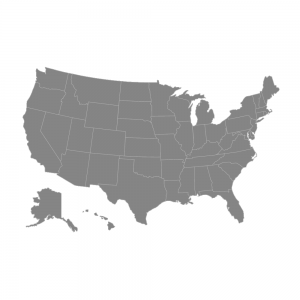Twelve Key Issues > States' Power
 The 10th Amendment states:
The 10th Amendment states:
“The powers not delegated to the United States by the Constitution, nor prohibited by it to the States, are reserved to the States respectively, or to the people.”
Article 1, Section 8 of the Constitution delegated few, enumerated powers to the Federal Government, reserving all remaining powers to the States and the people in the Bill of Rights. Thus, powers of the Federal were the exception.
Our federal republic was created by joint action of the several states. It has been gradually perverted into a socialist machine for federal control in the domestic affairs of the states.
The federal government has no authority to mandate policies relating to state education, natural resources, transportation, private business, housing, health care, ad infinitum. We call upon the Federal Government to close all unconstitutional federal agencies that usurp state power, some examples of said agencies being the EPA, BLM, DEA, NSA, DHS, IRS, etc.
We call upon the states to reclaim their legitimate role in federal affairs and legislation and thus cause the federal government to divest itself of operations not authorized by the Constitution and extract the federal government from such enterprises, whether or not they compete with private enterprise. We view Nullification as the constitutional solution for states to hold as null and void any federal legislation passed by Congress outside of their specific delegation of authority.
In defense of the natural right of “Nullification,” James Madison and Thomas Jefferson collaborated in the creation of the “Kentucky Resolutions.” Therein they wrote:
“Resolved, That the several States composing, the United States of America, are not united on the principle of unlimited submission to their general government; but that, by a compact under the style and title of a Constitution for the United States, and of amendments thereto, they constituted a general government for special purposes — delegated to that government certain definite powers, reserving, each State to itself, the residuary mass of right to their own self-government; and that whensoever the general government assumes undelegated powers, its acts are unauthoritative, void, and of no force. . . .”
“[I]t would be a dangerous delusion were a confidence in the men of our choice to silence our fears for the safety of our rights: that confidence is everywhere the parent of despotism — free government is founded in jealousy, and not in confidence; it is jealousy and not confidence which prescribes limited constitutions, to bind down those whom we are obliged to trust with power: that our Constitution has accordingly fixed the limits to which, and no further, our confidence may go . . . .”
“In questions of powers, then, let no more be heard of confidence in man, but bind him down from mischief by the chains of the Constitution. . . .”
“[I]n all cases whatsoever, by laws made, not with their consent, but by others against their consent: that this would be to surrender the form of government we have chosen, and live under one deriving its powers from its own will, and not from our authority; and that the co-States, recurring to their natural right in cases not made federal, will concur in declaring these acts void, and of no force, and will each take measures of its own for providing that neither these acts, nor any others of the General Government not plainly and intentionally authorized by the Constitution, shalt be exercised within their respective territories.”